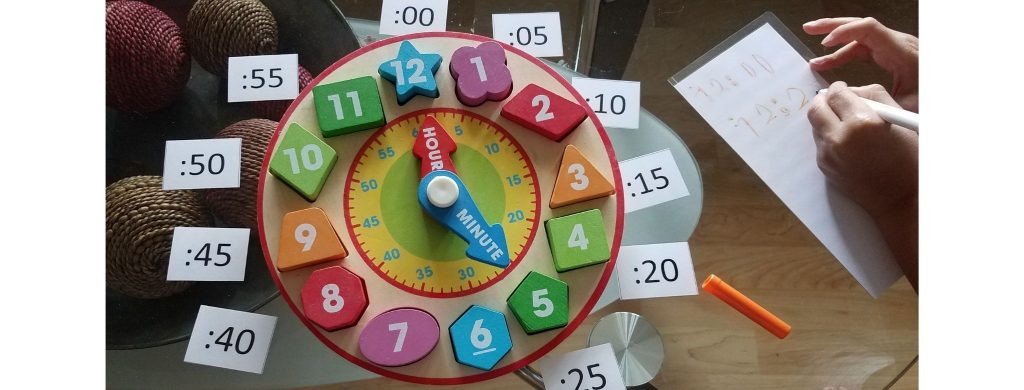10 Tips for Happy Homeschooling
by Kerry Cordy
Whether you are a longtime homeschooling family whose kids have never attended regular school or brand new to the at home education adventure, I thought I would pass on a few tips to hopefully ease your stress just a bit. As a parent whose kids were homeschooled for 7 years and went to regular school for 5, I have been on both sides of the homeschooling issue.
1. What Does Homeschool Look Like?
Homeschool does not have to look like public school. Every child is different and while some learn great sitting at a desk with a set schedule, others need to MOVE. Figure out how your child learns best. Each of your children may learn differently, but the advantage of homeschooling is you can adapt as necessary. My oldest was a visual learner who loved to read. Sit her at the dining room table with a textbook and she was good to go. My youngest had the attention span of a flea and never stopped moving. As a result she did most school work under the table, hanging backwards off the couch, or out on our dock with her feet in the pond. Homeschool can be done anywhere and anytime. There is no right or wrong way to do it and everyone homeschools a little differently.

2. Paperwork
Homeschool does not have to include lots of paperwork. Learning can take place in many forms and just because you don’t write something down doesn’t mean you aren’t learning it. We made every Wednesday a no paperwork day. On Wednesdays we played educational games, took field trips, did extra PE. We created scavenger hunts for mathematical angles, for things that started with the letter T, or for different plants or bugs. We studied weights and measures in the produce section of the grocery store. Get creative and make sure to take a break from all the paperwork piles. Check out our article on 10 Ways to Make Homeschooling Fun.
3. Quiet Time
Have at least 30 minutes, or more if possible, of quiet time each day. Downtime is good for everyone. Naps can be taken, books can be read, drawings can be created. No TV or video games. Quiet time is important for both kids and parents. It gives you time to to regroup.

4. Homeschooling is Hard
Homeschooling is hard work. It is a job and there is a reason we pay teachers to do it (though not NEARLY enough!) Being a parent is also hard work so doing both is like working overtime. You can’t always get everything done and that’s ok. Somedays the dishes will just have to sit in the sink. Others, that science experiment just might not get done. Its ok. Both your kids and your house will survive.
5. How Much Time?
Homeschooling takes half as long as public school (assuming your kids are actually behaving….) There is no standing lines, switching between classes, or answering the questions of 30 plus students. Most schooling can be done in about 3 hours so try setting aside that amount of time just for school. Depending on the age of your child you may need more or less time, but don’t do anything else during that time. Just teach, answer questions and do fun educational activities that align with your studies. No housework, dishes, or other chores. Give your kids your undivided attention.
If your kid is on board, most school can be done in that amount of time and your child will have most of the day to play and explore. If your kid is being stubborn and doesn’t want to do their work, then at least the teaching portion is over and you can go about other chores while your child sits at the table wailing about the book report they don’t want to write.

6. Its a Job
If your kids complain, remind your children that school is their job. Just like adults have a job to do, so do kids. While you can try to make it fun, not everything will always be enjoyable. We all have things that we would rather do than our jobs but the faster the job gets done, the more time they will have for other activities they want to do.
7. Character Education
Homeschooling is as much about character education as it is about academic education. This is where your skills as a parent get fine tuned. How do you deal with temper tantrums? With kids who refuse to do their chores or their schoolwork? Do you give in? Tough love is tough for a reason. It is just as hard on the parent as the child, but discipline is essential for teaching a child about work ethic, respect, and common courtesy. This is where you will learn as much as your child. Learn to keep your cool, to stay calm while they scream. Learn to hold firm to the consequences you to set up for their actions even if you don’t want to. The better you get at character education, the smoother your academic education will go.
8. Have a Routine and Break It…
Have some sort of general routine. Get up and have your kids get up at the same time everyday. Know when snack time, lunch time and play time is. Routines are great up to a point, but half the fun of a routine is getting to break it. Sometimes life just happens and your routine gets torn to shreds. No worries, start again the next day. Other times you break routine on purpose to do something fun and out of the ordinary. Keeping a general routine sets expectations for your kids that makes school run more smoothly. Breaking that routine on occasion teaches them how to adapt to new circumstances regardless of whether it is something good (a field trip to the zoo) or bad (helping mom mop the kitchen because the dishwasher broke.)

9. Homeshool Curriculum
You do not need to spend hundreds of dollars on fancy curriculum. If you have never homeschooled before or you like some sort of structure to follow, purchasing a set curriculum is just fine. That said, in the modern age of the Internet, everything you really need is available for free if you just learn how to search for it. Every state has their state standards online and as long as you meet those educational standards by the end of the school year, you are good to go. Read through our Badges as Homeschool Curriculm article to see how badges can be divided into educational categories that match state standards. Find out what your child is required to know and then choose badges that align with those topics. The internet has tons of free resources. There are free online history and geography games; free printable writing paper and prompts; free coloring sheets; free science experiment instructions and so much more!
10. Time Off
Take a day, or even a week off. One of the great things about homeschooling is you have the flexibility to take a Monday off and do school on a Saturday. Take a week off and go on vacation without worrying about missed assignments. When homeschooling, I always set our schedule so that every two months we had a one week break. Not only did that give us time to do a lot of fun things, but it also kept the kids focused when they knew they would have a decent break in just a few weeks.
Curiosity Untamed is all about making education so much fun that you never want to stop learning. Whether you homeschool your kids for the long haul or put them back in school when they get older, this time you have with them is a unique opportunity. Don’t waste it. Homeschooling is hard, but worth every second.





